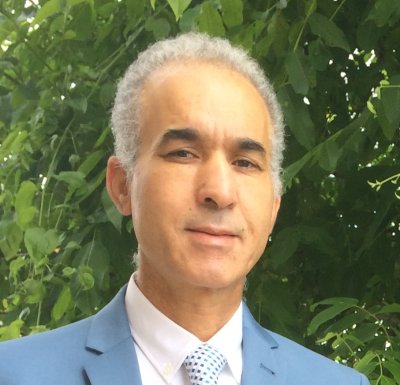Over the past five decades the US has used its veto in the UN Security Council on 52 occasions to protect Israel from even being censored or reproached let alone threatened with sanctions. Throughout those years Israel as an occupier of Palestinian land has committed every imaginable atrocity against the civilian Palestinian population. In the recent Israeli aggression against besieged Gaza the US used its veto to block a simple call for a ceasefire literally giving Israel extra time to kill more civilians and destroy their homes and infrastructure.
The excuse for this is always “Israel has the right to defend itself”; or that the adoption of such measures is unlikely to help the situation; or it will make the phantom peace process more difficult. Such statements by the White House and State Department are always accompanied by the usual cliché that the US is committed to Israel’s security as if it is the Zionist state that is being invaded.
Behind all this “unequivocal” support for Israel is what Washington and Tel Aviv call the “special relationship” that bonds the two countries together. It’s so special that it goes beyond what is normal in international relations; something so unique that over the years it is puzzling for anyone trying to figure out what it is that bonds the two countries together.
Ties between states are usually rooted in shared interests values and visions either regionally or globally. However none of those really apply in the bond between the US and Israel.
Washington’s Middle East interests have little in common with those of Israel. For example the occupation state played little or no role in the US invasion of Iraq in 2003. In fact Washington rejected Israeli involvement because of the fact that it would send the wrong political message and perhaps drive away support from the Arab states. Having Israel on board would have played negatively across the region and among Washington’s allies.
The current issue of the Iran nuclear deal is a good example of where American and Israeli interests don’t match. While Washington is slowly but steadily moving towards rejoining the nuclear deal it signed with Iran in 2015 but left in 2018 under Donald Trump Israel is opposing the move. Israeli Prime Minister Benjamin Netanyahu threatened to strike Iranian nuclear facilities if the US rejoins the agreement and lifts its sanctions on Tehran. Israel will not hesitate to sabotage US foreign policy if it suits its own interests to do so.
In terms of respect for international law and norms there is very little in common between the US and Israel at least in theory. While Washington claims to base its foreign policies on human rights and democracy before economic gains — however arguable such claims are — Tel Aviv treats such laws and norms with contempt. For instance Israel is occupying land in Lebanon Syria and Palestine and has been condemned by the UN but concerns are brushed aside with “Israel has the right to defend itself”. Moreover it does not fulfil its responsibilities under international law as the occupying power. It should for example ensure that the people living under occupation are provided with clean water food and all the basic necessities of life including education and health care. Israel does none of this.
Such a power cannot legally annex land it controls through military means but Israel has annexed land in the Syrian Golan Heights (1981) and Palestinian East Jerusalem (1980) and continues to occupy ever more of the West Bank with its illegal settlements apartheid wall and settler-only roads. This de facto annexation effectively eradicates the possibility of the Washington-backed two state solution.
While the US prides itself on being a democracy the Israeli government openly discriminates against its own Palestinians citizens. Israeli human rights group B’Tselem has called this “apartheid” as has Human Rights Watch. Where are the democratic values that Israel is supposed to share with the US?
In humanitarian terms the divergence between the US and Israel is very clear. While the US presents itself to the world as a peace maker and the biggest donor of humanitarian aid Israel has been abusing Palestinian rights and besieging the Gaza Strip for decades. Israel not only decides what and who can go into Gaza (and come out) but also when and how any humanitarian aid is allowed to reach the millions of Palestinians living in terrible conditions in the enclave.
Nevertheless the US hands over to Israel more than three billion dollars every year mostly in military aid which is financing Israel’s killing machine that oppresses and kills Palestinians on a daily basis.
The security aspect of the “special relationship” is even more bizarre. Israel is known to have spied on the US and may well still be doing so. US military and political officials have been caught supplying top secret documents to Israel: Jonathan Pollard and Lawrence Franklin for example. Both were convicted by US courts of spying for Israel. Pollard was given a hero’s welcome when he eventually returned to Israel after years in an American prison.
Domestically this “special relationship” has become a dangerous taboo for any American citizen wishing to serve his country by working in the government. Criticizing Israel or its relations with the US even constructively is likely to sink any candidacy for a government job. The skills and qualifications of those so nominated are brushed aside in the confirmation process. Such nominees are usually grilled about loyalty to Israel more than to their own country. All US officials must openly clearly and unequivocally express their love support and sympathy for Israel particularly if the job is in the White House or the State and Defense Departments. This deprives Washington of no doubt exceptional talent and skills simply because the candidates will put US interests first over and above those of Israel.
Israel is clearly impeding America’s role as a world leader. The US must be honest with itself if it wants to retain such a position and restructure its ties with Israel in a way that reflects its own interests first and foremost. That is what applies in its relationships with other countries; why should it be any different for Israel?
– Mustafa Fetouri is a Libyan academic and freelance journalist. He is a recipient of the EU’s Freedom of the Press prize. His article appeared in MEMO.













